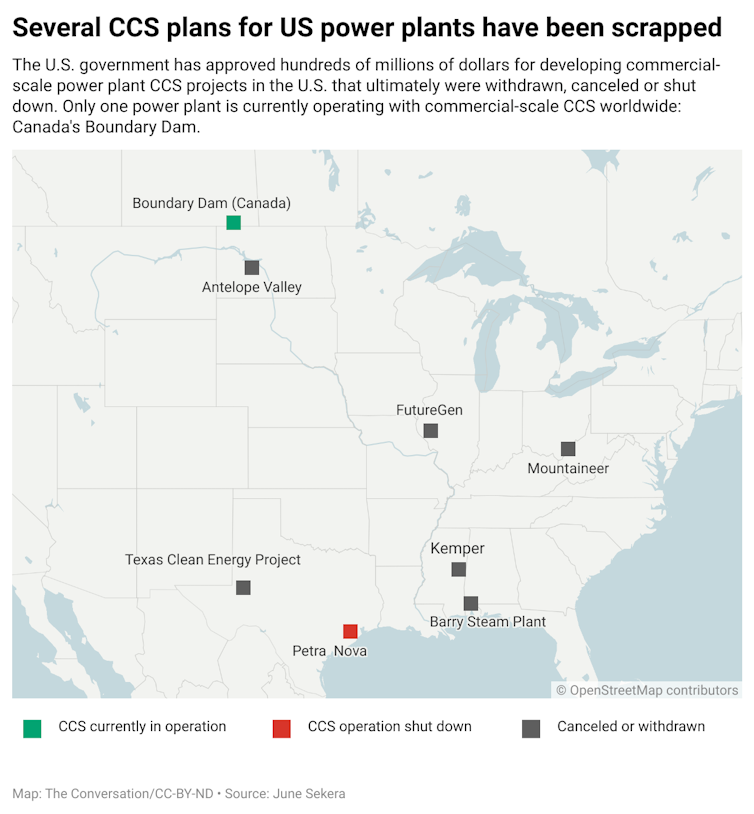|
The torrent of news – leaked internal documents, congressional hearings, independent research – about the harm Facebook, Instagram and WhatsApp cause gives the impression of an open-and-shut case. Surely, they pose a threat to their users’ mental health and spread misinformation.
Studies from Meta and a few academic researchers paint a different picture. They suggest minimal harm.
You would be forgiven for thinking that these seemingly contradictory findings mean somebody is right and somebody is wrong. That isn’t the case here, writes Joseph Bak-Coleman, who studies collective behavior at the University of Washington. How both sets of research can be correct comes down to the math of averages, he explains.
Also today:
|

|
Eric Smalley
Science + Technology Editor
|
|

Mark Zuckerberg’s company says the kids are all right, but the data it presents is only about how the average social media user is doing.
AP Photo/Eric Risberg
Joseph Bak-Coleman, University of Washington
Research from Meta and some scientists shows no harm from social media, but other research and whistleblower testimony show otherwise. Seemingly contradictory, both can be right.
|
Economy + Business
|
-
Scott L. Montgomery, University of Washington
Biden ordered the release of 50 million barrels of crude oil to tamp down rising gas prices, the largest drawdown in the reserve’s history.
|
|
Education
|
-
Allison Master, University of Houston; Andrew N. Meltzoff, University of Washington; Sapna Cheryan, University of Washington
Could it be that girls aren’t pursuing jobs in computer science and engineering because society has told them that’s not what they want to do? Three scholars weigh in.
|
|
Arts + Culture
|
-
Roger J. Kreuz, University of Memphis
As political parties spar, insults and catchphrases are adopted, appropriated and reappropriated in a dizzying verbal arms race.
|
|
Politics + Society
|
-
Yan Bennett, Princeton University; John Garrick, Charles Darwin University
What happens when a Chinese #MeToo moment meets authoritarian legality?
-
Robert Spitzer, State University of New York College at Cortland
America’s love-hate relationship with guns is reaching a new level.
-
Wendelin Hume, University of North Dakota
Thousands of cases of missing and murdered Native Americans remain unsolved. A scarcity of reliable data is only part of the problem, a tribal justice scholar explains.
|
|
Ethics + Religion
|
-
Dorian Llywelyn, USC Dornsife College of Letters, Arts and Sciences
A scholar of Christian spirituality argues that prayers are meant to bring together a faith community – something apps aren’t likely to achieve.
|
|
Health
|
-
Brian Mayer, University of Arizona; Melissa A. Barnett, University of Arizona; Mona Arora, University of Arizona; Sabrina V. Helm, University of Arizona
Supermarket employees, still laboring in crisis mode, continue to report significant rises in physical and mental health problems.
|
|
Environment + Energy
|
-
Tom Ptak, Texas State University
How and where people spend their money and use energy can influence corporate behavior.
|
|
Trending on Site
|
-
Thomas Durant Visser, University of Vermont
Barns are practical buildings, designed to safeguard farm animals and equipment. Why are so many of them painted to stand out from the landscape?
-
Robert Jacobs, University of Rochester
Errors don’t necessarily mean your mind is faulty. They may actually be a sign of a cognitive system with limited capacity working efficiently.
-
Morgan Marietta, University of Massachusetts Lowell
The upcoming debate at the Supreme Court is less about the existence of the right to abortion and more about how that right is limited by the emerging personhood of a fetus.
Today’s graphic

From the story, Why the oil industry's pivot to carbon capture and storage – while it keeps on drilling – isn't a climate change solution
|
|
| |
| |
| |
| |
|
|